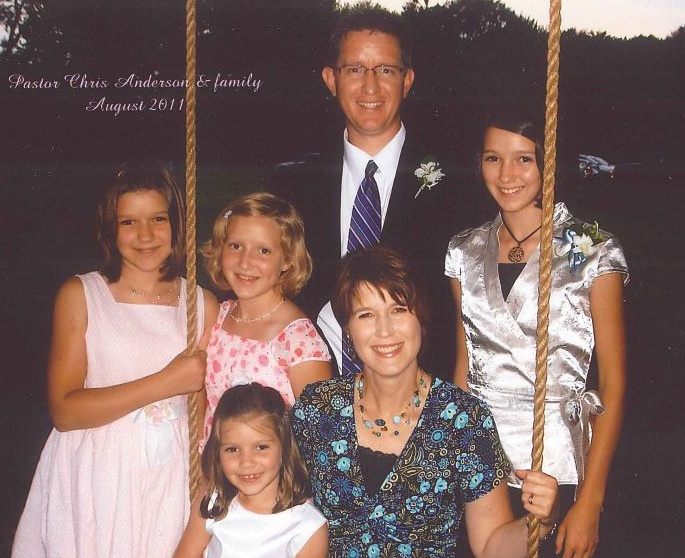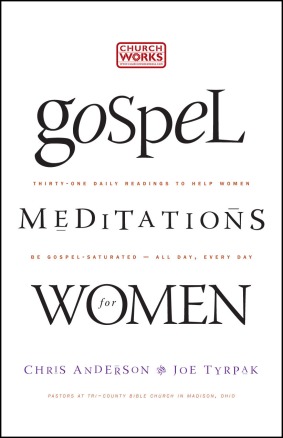Some time ago, I made a blog post in which I took exception with Dr. Al Mohler’s participation in the “Reclaiming America for Christ” conference. Dr. Mohler was scheduled to speak alongside a Roman Catholic priest and Ann Coulter, among others. Though I’ve appreciated much of what Dr. Mohler has said and written, I thought he was making a mistake, and I said so.
Well, someone brought my post to Dr. Mohler’s attention, and in January of this year he sent me a very gracious email explaining how he got into the predicament, how he quietly got himself out of it (he did not speak at the conference), and–most importantly–why. Here’s the germane portion of the correspondence, which he has given me permission to post:
Pastor Anderson:
Someone sent along a blog article you wrote on my scheduled appearance at the D. James Kennedy conference. I appreciated the tone of your article. More importantly, I agreed with your point. I had no idea that the Catholic priest or Ann Coulter would be on the program. I was asked to speak on the role of the church as a counter-culture, and I gladly agreed. Dr. Kennedy has meant a great deal to me from the time I was 15 years old and he was so gracious with his time for me. Much of my theological grounding came from his own theological contributions, books he recommended, and persons I came to know through his ministry at Coral Ridge. I would do nothing intentionally to embarrass him in any way.
Nevertheless, early in December I quietly withdrew from the program. The ad in WORLD was my first clue as to what was afoot. I would be happy to testify before Congress on embryonic stem cell ethics alongside a Catholic priest or to speak at a symposium on abortion or other ethical issues. I would be glad to explain and defend the Gospel in a Roman Catholic setting where I could be fully free to do so. I would invite a leading Roman Catholic thinker (Robert George of Princeton) to Southern Seminary to deliver the Norton Lectures in which he will make the case for an ethical and theological method based in the natural law. I will do so because I will then respectfully respond with an evangelical, Reformation-based rejoinder to his argument. I will argue that Romans 1 and 2 indicate that there is a natural law but that it is (largely and fatally) unintelligible to the unregenerate, whose very (unregenerate) consciences cannot be trusted. Thus I will argue that evangelicals cannot surrender an ethical and theological method that is explicitly and honestly grounded in Scripture. I want my students to understand these issues clearly.
I agree with the Reformers that the Roman Catholic Church represents the greatest challenge to evangelical theology. As I stated (rather notoriously) on “Larry King Live” some time ago, the papacy is a false office, the Roman Catholic Church is a false church, and it preaches a false gospel. I cannot participate in any setting that would confuse the Gospel or the nature of the true Gospel church.
Thus, I withdrew. I did so quietly and without intent to embarrass a friend (who is now recovering from a major heart attack).
If you see that might compromise the Gospel in any way, please do me the kindness of bringing this to my attention.
Faithfully,
Albert Mohler
I appreciate Dr. Mohler’s response very much on a personal level. His taking the time to respond and the gracious way in which he did so are humbling.
I also appreciate Dr. Mohler’s response on a theological and ministerial level. I think it raises a number of important issues for consideration:
* First, by refusing to participate in the conference, Dr. Mohler practiced biblical separation. (In fact, if you think about it, he actually practiced a form of so-called “secondary” separation–stepping away not only from unbelief, but also from an evangelical conference to which the unbelief was linked. Interesting.) Granted, Dr. Mohler does not always separate in a way which fundamentalists believe is required by the Scriptures, but we should applaud this stand even as we urge others like it. If our interest is indeed truth and not turf, let’s rejoice when right decisions are made.
* Second, Dr. Mohler applied the principle of separation to an instance of so-called “platform fellowship.” Refusing to appear alongside error or compromise is a conviction that has been lampooned both by evangelicals and professing fundamentalists, yet it is the basis on which Dr. Mohler made this particular decision. Certainly he described situations in which he would be willing to speak with or to Roman Catholics, but he chose not to do so in this setting. Again, interesting.
I suggest that evangelicals could learn much from Dr. Mohler’s example in this situation. And frankly, so could fundamentalists, who are certainly not immune to the error of speaking in venues that compromise the truth.
* Third, Dr. Mohler explained his thought process in determining where he can and cannot speak and why. We may or may not agree with his conclusions, but we should at least deal with him and his reasoning honestly. Fundamentalists have not always done this, but have sometimes misrepresented evangelicals and their positions. Doing so is sin. It is also silly–in the long run, it costs us our credibility and hurts our position. If we disagree, let’s disagree with facts, not phantoms.
* Finally, all of us could learn from the grace with which Dr. Mohler responded to a challenge and the conviction with which he rectified a mistake.
Thank you, Dr. Mohler, for your example in this situation. Well done.
Filed under: Contemporary Issues, Fundamentalism |










[…] Chris Anderson provides the firsthand account from Dr. Mohler: I agree with the Reformers that the Roman Catholic Church represents the greatest challenge to evangelical theology. As I stated (rather notoriously) on “Larry King Live” some time ago, the papacy is a false office, the Roman Catholic Church is a false church, and it preaches a false gospel. I cannot participate in any setting that would confuse the Gospel or the nature of the true Gospel church. […]
Thanks Chris,
This explains well what happened. Congratulations! Appreciate the way you’ve handled this on both sides of the event. I’m thrilled that Dr. Mohler gets to retain his membership as a Type C Fundamentalist! (Not that he or anyone else really cares about that! :) Prayerful you are well Chris. Appreciated the deal you did on Christ’ love and the death of His Saints…..Prayerful you are enjoying God’s mercy in shepherding these days….Stay Warm!
Straight Ahead!
Joel
Chris,
You might want to check out this article by Wayne Grudem, Why, When, and For What, Should We Draw New Boundaries? Evangelicals think a lot more about matters of “separation” than Fundamentalists generally give them credit for.
Chris
Very interesting. However, given the confusion that Mohler’s apparent cooperation with the conference caused, I think he would have been wiser to be more public about his non-participation earlier. While I understand his reasons for not doing so, it seems to me that he caused himself some short term damage at the very least, and possibly the same for the gospel itself. In any case, I am glad he made the right decision on this and allowed you to share his letter publicly.
BTW, I must be somewhat … what’s the word???… twisted? I saw a black sort of humour in this paragraph:
“Thus, I withdrew. I did so quietly and without intent to embarrass a friend (who is now recovering from a major heart attack).”
Sheesh, Dr. Kennedy took that withdrawal awful hard!
Regards,
Don Johnson
Jer 33.3
[…]Chris Anderson, a faithful pastor in Ohio, just posted part of a letter that Al Mohler sent him last January. Mohler explains why he withdrew from speaking at the “Reclaiming America for Christ” conference (March 2-3, 2007). In my limited view, this letter speaks very highly of Al Mohler and his commitment to the gospel.[…]
Chris,
Not build on Don’s interruption of the Al Mohler lovefest ;-) , but how is this secondary separation?
Additionally, a lesson I take away is that when a person who faithfully and courageously defends the gospel (at immense cost of personal persecution) seems to be following a course of action that blurs the lines of the gospel, perhaps I should care enough about the gospel and the individual to pursue the matter with him personally.
When I heard of this conference, I considered several possibilities, one of which was this scenario, though I didn’t think it particularly likely. Given Mohler’s response, I have every reason to conclude that I was negligent not to have done due diligence to communicate with Dr. Mohler’s staff to find out the truth and share legitimate concerns.
“Thus, I withdrew. I did so quietly and without intent to embarrass a friend (who is now recovering from a major heart attack).”
On one level I can appreciate this concern to not embarrass a friend but, OTOH, isn’t shame a Biblically designed part of the restoration process?
I.e., “have no company with him, that he may be ashamed.” My understanding is that this shame or embarrassment should cause the out-of-step brother to reconsider his ways. Our separation is not only designed to keep us obedient in guarding the gospel but also to encourgage the obedience of the brother from which we separate.
I agree with Andy Efting.
“Our separation is not only designed to keep us obedient in guarding the gospel but also to encourage the obedience of the brother from which we separate.”
[…] the whole response and some reflections by Pastor Chris Anderson, to whom the above letter was […]
Andy and Andy, :)
Since we’re not privy to the conversation Dr. Mohler had when he withdrew, it may be unfair to assume what was or wasn’t said to Dr. Kennedy and the conference staff.
We’ve probably all had times when we’ve expressed a difference of conviction or even issued a rebuke privately rather than publicly. I think we should be careful about criticizing Dr. Mohler on that issue.
(Addition: All that to say, I understand his withdrawing quietly where there is a long-standing friendship. Perhaps he should have withdrawn loudly–I actually suggested that he express the reason for his withdrawal via one of his many outlets, as I believe it’s an example of which Christian leaders should be aware. But I have a hard time criticizing someone for doing the right thing more quietly than I might prefer.)
Chris, I don’t think it is simply a question of method. Ben asks whether this is an example of secondary separation, and I think it is a good question. Mohler is not separating from anyone, he is just not participating in a particular conference.
So while I am glad that he made the decision, he hasn’t become a fundamentalist yet. (Nor is he likely to do so, given previous comments he has made concerning fundamentalism, etc.)
Regards,
Don Johnson
Jer 33.3
Part of this discussion is hindered by my use of the term “secondary separation.” My intention was simply this: I found it interesting that Dr. Mohler was not only refusing immediate participation with a Roman Catholic (e.g. speaking a a priests’ fellowship or having the priest preach for evangelistic meetings at SBTS), but was instead refusing to participate in an evangelical conference because of the conference’s ties to a Roman Catholic.
At any rate, that portion of the discussion and that terminology just muddies the waters. It is terminology that Dr. Mohler probably wouldn’t use to describe what he believes or even what he did. I apologize. I’d edit it out, but that would probably cause greater confusion.
FWIW, I’m not intending to make Mohler a fundamentalist. I don’t generally agree with his take on separatism. I think he did the right thing here, and I appreciate it.
Chris wrote:
“I have a hard time criticizing someone for doing the right thing more quietly than I might prefer.”
Chris, isn’t that one reason you’re not really a fundamentalist either?
Additionally, I don’t think your explanation of secondary separation is really consistent with the way it’s commonly used. I think people who use that term mean that Mohler wouldn’t have any cooperative relationship with anyone who participates in this conference, regardless of the nature of the cooperation. They become disobedient to biblical teaching by willful association with this event and the people involved. Or am I out to lunch on this one?
Chris,
I’m with you on this one. Let’s give credit where credit is due.
I’m wondering where the part of charity and Biblical stand merge here? There are things that I’m sure Dr. Mohler has right that I don’t have right in my ministry. If he wanted to, he could tear me down for those things–even though he doesn’t know me. (Hypothetical there.)
I think one thing that many fundamentalists have had for many years is to throw everything that evangelicals do out the door because of their lack of separation. I think that is dishonest to our congregations as it teaches them that everything that an evangelical does is wrong. However, when some people in our congregations get to studying a little bit more on their own or hear one of these men on the radio or read some of their books, etc., they almost feel like they have been lied to and the danger is to go full throttle the other way and follow these men without any type of “brake” whatsoever. I’ve lived some of that myself and recognize the danger.
Yes, Dr. Mohler is not a fundamentalist, but he has much we can learn, and many others like him have the same, and we will learn if we seek to follow God’s Word and also be discerning. The same could be said for anybody in my church–examine all things. 1 Thessalonians 5:21–“Prove all things. Hold fast that which is good.”
The labels “primary” and “secondary” were coined, I believe, to mark the distinction between separation from unbelievers and believers respectively. Because “primary” separation is clearly taught in the Scriptures, refusing to obey these Scriptures became an issue of disobedience that called for separation from those who were disobeying.
I’m not sure why some are trying to dissect what Dr. Mohler did here. It is clear he acted on his conscience, and that is a good thing.
Actually, I thought we were more trying to dissect what Chris did…
Regards,
Don Johnson
Jer 33.3
Nice.
Seriously, Brian, I think the question is not whether he acted on his conscience, but whether he acted in a manner consistent with Scripture. So I don’t think asking questions about it is illegitimate.
That said, when someone does the right thing, an “attaboy” may be more appropriate than a “yeah, but” or an “it’s about time.”
Dissect away.
I agree that asking about it is fair game. I guess I didn’t fully explain my thoughts about Dr. Mohler acting on his conscience. When I typed that, I was thinking of Luther’s comments that to go against one’s conscience is neither right nor safe, and I would hope that Mohler’s conscience would line up with Scripture. In this instance, I believe it did, and I prefer to give him an “attaboy”, instead of a “yeah, but”.
Thanks.
Chris:
I’m interested – did you send a response?
Yep. It’s on the computer I dropped, though.
I thanked him for his gracious note, told him I appreciated what he had done, and encouraged him to present his decision in a public venue as an example to others of what gospel-driven convictions look like.
I was impressed by his good spirit. That said, when I first got a note from him asking “if I’m the Chris Anderson who has a blog called My Two Cents,” I think I broke into a cold sweat. :)
“Uh…no. Never heard of him.”
Sheesh – Al Mohler reads your blog and you guys send each other emails. You get your pic on the TFTG website…
You, my friend, are one hooked-up dude!
Thanks for sharing this, Chris.
One other thought here.
“Do not rebuke an older man but encourage him as you would a father.” (1 Tim. 5:1 ESV)
Kennedy is certainly older than Mohler, and so this admonition applies as well.
This whole incident goes to show that just because conservative evangelicals (ie those outside of the fundamentalist movement) don’t practice separation in the same manner fundamentalists do, that doesn’t mean they don’t actually practice separation.
Again thanks for the post. (Came here thru currentchristian)
Blessings in Christ,
Bob Hayton
Hey, Bob.
I intended to get back to this earlier, but I’ve been swamped for a while.
Regarding the idea that conservative evangelicals do practice separation in some manner: I think that’s generally true. However, I think Mohler’s stepping away from this event is very different from his participation with the Graham crusade, or even from MacArthur’s “judge me based on what I speak, not where,” etc. Also, most conservative evangelicals still seem to deny the idea that the Bible requires separation from erring Christians, at least outside of the local church setting. For example, I was able to ask Dever if passages which address church discipline (which he probably applies at CHBC more conscientiously than most fundamentalists) apply to fellowship and cooperation with Christian brothers outside of the local church setting (e.g. separation). He said that no, there is no biblical mandate to separate in that sense, though he may choose to do so to avoid confusion, say in declining to participate with Graham. On the other hand, I’ve heard Dever allude to taking a group from CHBC to Promise Keepers a few years back. I’ve heard a guy like Kent Hughes celebrating his independence from denominational ties even as he says that his church is a proud member of the NAE. I just don’t understand it, to be honest.
Anyway, it’s a complicated issue, and it’s not even fair to address these 4 men as though they are in agreement regarding separation. My point is simply that 4 of the more conservative evangelicals participate in events or preach in venues I would disagree with. I’m not on a witch hunt, and I’ve benefited from the teaching ministries of each of these men to a great degree. However, the distinctions between the way fundamentalists and conservative evangelicals understand and apply separation are still fairly significant, IMO.
[…] Anderson, a faithful pastor in Ohio, just posted part of a letter that Al Mohler sent him last January. Mohler explains why he withdrew from speaking at the “Reclaiming America for Christ” […]
[…] the original post from April 10, 2007. I include my introduction and response, but the germane portion is the letter from Dr. […]
[…] the original post from April 10, 2007. I include my introduction and response, but the germane portion is the letter from Dr. […]